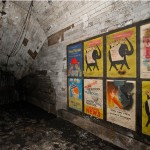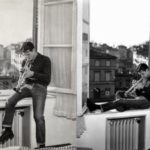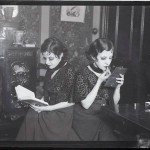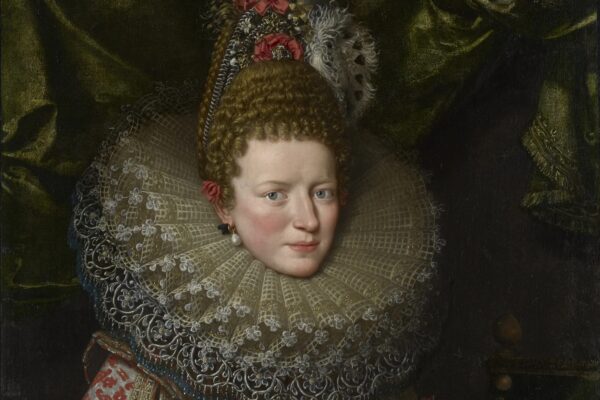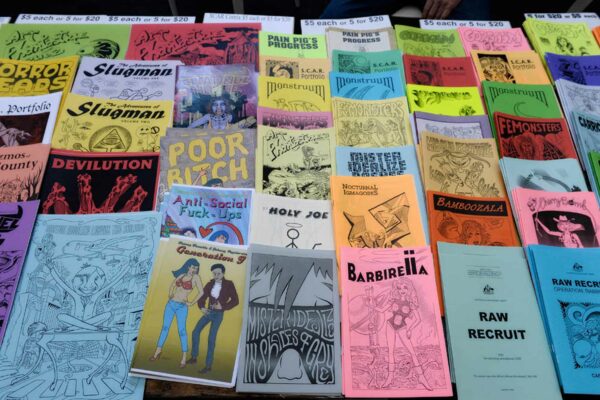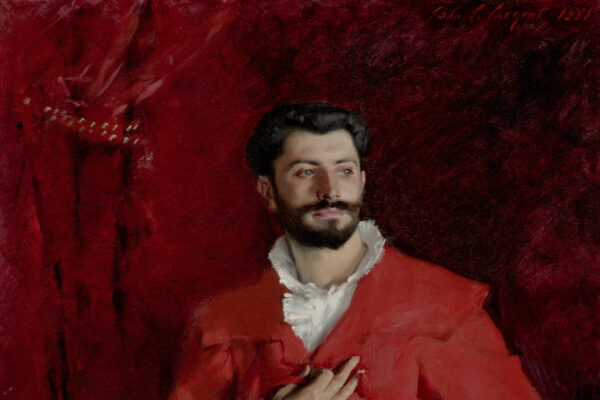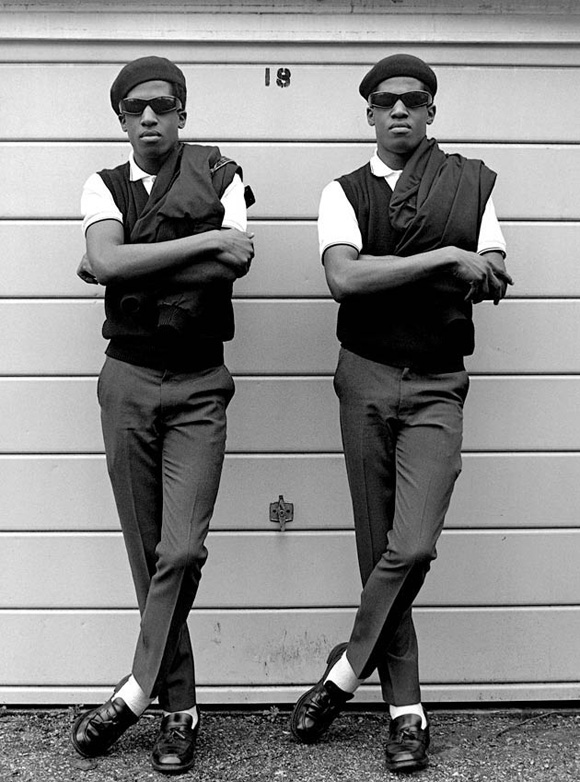
If you happened to have lived in North London at any point between the early 1970s to this day, around the Islington & Highbury tube station specifically, there’s a good chance you might have seen these dapper chaps, Chet and Joe Okonkwo, a.k.a, the “Islington Twins”.
Lead image (c) Janette Beckman
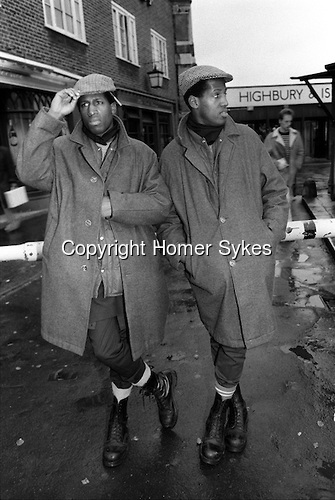 For almost a decade in the 1980s, every morning and evening, they would meet at their club, “The Bar” with their eager crowd of teenage followers. The Bar didn’t serve any food or drink, there was no jukebox or seating booths, it was actually just as the name implied, a bar, a horizontal pole that stopped cars from entering the road to Islington tube station.
For almost a decade in the 1980s, every morning and evening, they would meet at their club, “The Bar” with their eager crowd of teenage followers. The Bar didn’t serve any food or drink, there was no jukebox or seating booths, it was actually just as the name implied, a bar, a horizontal pole that stopped cars from entering the road to Islington tube station.
Identically and impeccably dressed, tall, handsome and almost always together, the twins commanded an audience.
Image (c) Homer Sykes
“No arguments, no fights, no alcohol; just teenagers gathered on a corner, come rain or shine, to do what teenagers did best – and still do, though the format has changed, i.e. Facebook, Twitter – which was to talk and talk and talk and talk about nothing, anything and everything.”
(It’s a bit of a challenge to find any online presence of their own, but I think this is their website, where they reminisce about their youth and talk about the staying power of style and etiquette.)
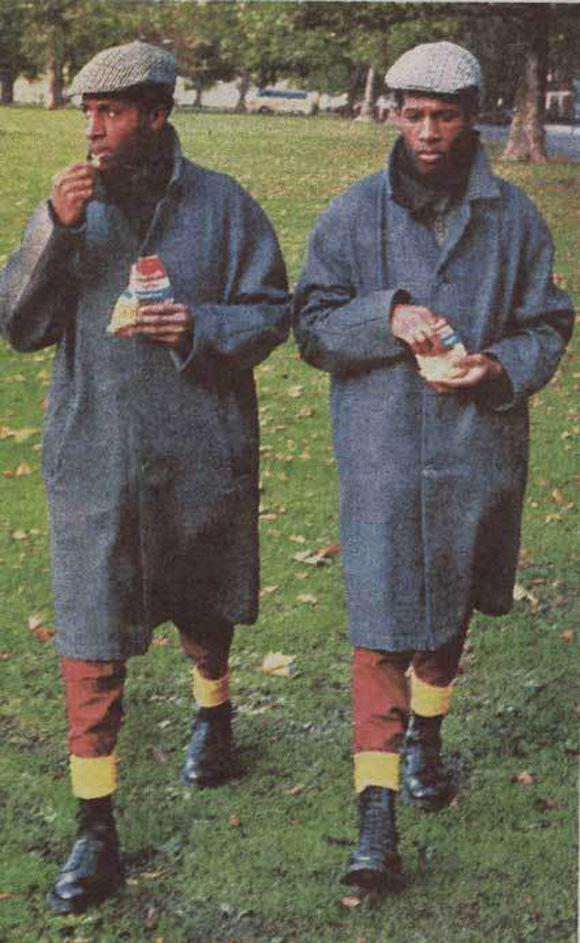
The Islington twins were crazy about style and fashion, and particularly influenced by the 60s Mod revival. “There is no way – and we were conscious of this at the time having studied the book, Mods! by Richard Barnes – that we could claim to be as stylish as those original 60s Mods with their tailored suits.”
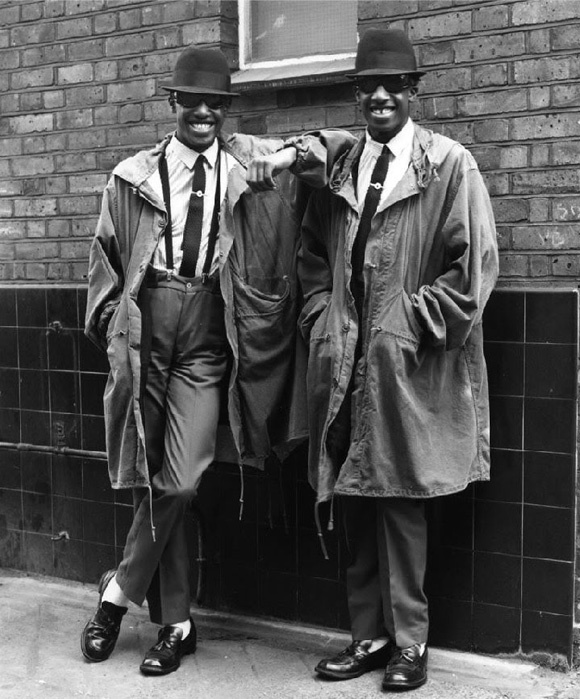
They became early pioneers of London street style when photographer Jeanette Beckman spotted them and their photo ran full page in The Face mag in 1980.
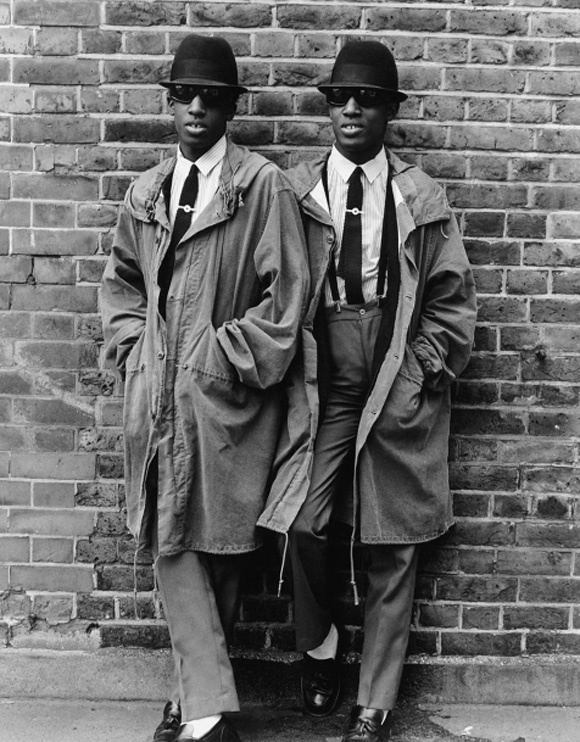
The fact that these boys and their outfits were not photographed more often however, is a great shame. Islington local Mary Mount remembers their outfits in an article for the Guardian.
“One day it would be bright orange hard hats, nightshirts, white socks and Chinese slippers; another day tweed caps, red neckerchiefs, dark blue boiler suits, odd rugby socks in primary colours and striped scarves from a public school or an Oxford college…and they were never seen without hats”.
The Islington twins had an obsession with the upper class. They had goals to study at Oxford and invented fabulously rich alter egos for themselves, fantasizing about living in large country houses. In reality, the were living on a council estate they called “the squat” with their beloved single mother.
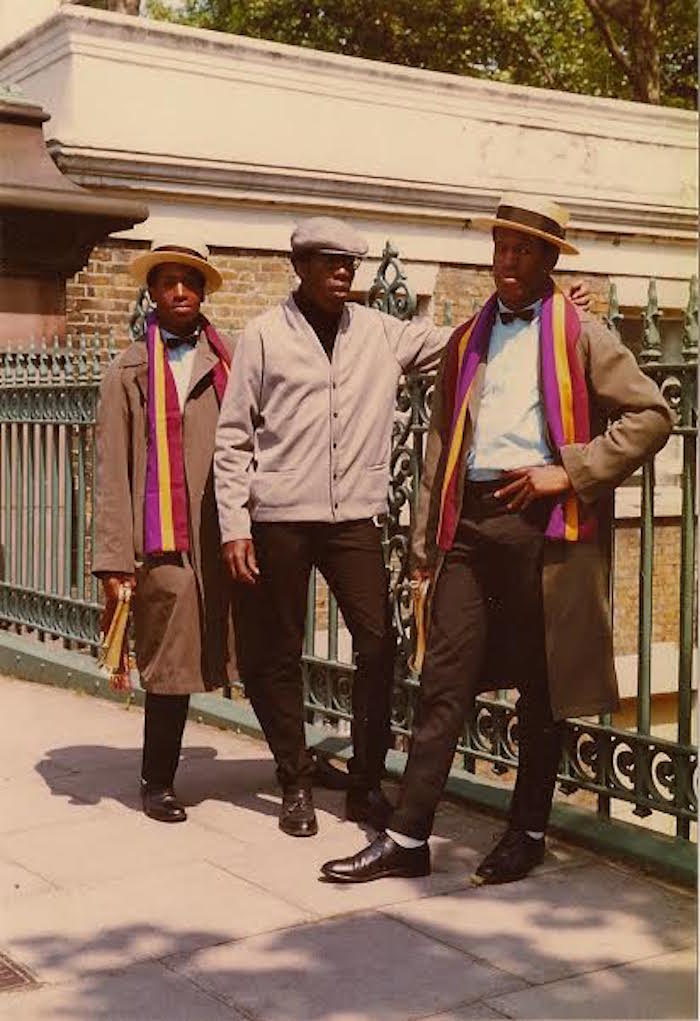
They had big dreams and they read and studied voraciously, but refused to take 9 to 5 jobs, paying for their fashionable habit with the little money they made on paper rounds, occasional photo shoots and house-sitting for a large gentleman’s home in North London filled with expensive art (seriously, you should read all about their fascinating lives here).
Despite their refusal to settle for full-time jobs with modest incomes, they were not trouble makers and always had a positive influence on the youngsters that followed them.
“Chet and Joe would pep up boys with exam worries or boost the confidence of nervous girls; they were inveterate gossips; they were teased mercilessly for being so square (they didn’t drink or smoke and claimed not to have sex),” remembers Guardian writer, Mary Mount. “Their voices were booming and distinctive – a hybrid of larky 1930s public schoolboy and Nigerian man-about-town…They would echo each other’s sentences or one would finish what the other was saying, a sort of conversation in stereo.”
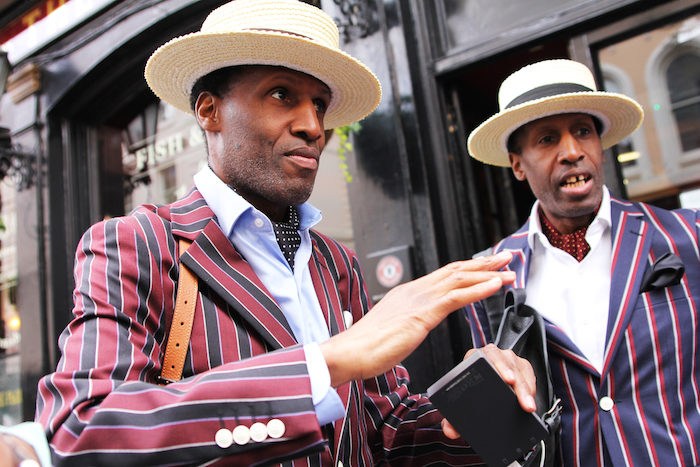
(c) Entouraaj
The twins are now in their early 50s. They still dress alike and to this day, they still reportedly have never gained any qualifications or had a full-time job. And yet, they still look like a million bucks. They’re local legends.
Going the 9 to 5 route they say, “would have meant we would not be as free as we are to think what we want, read what we want, say what we want. We would never have wanted that.”
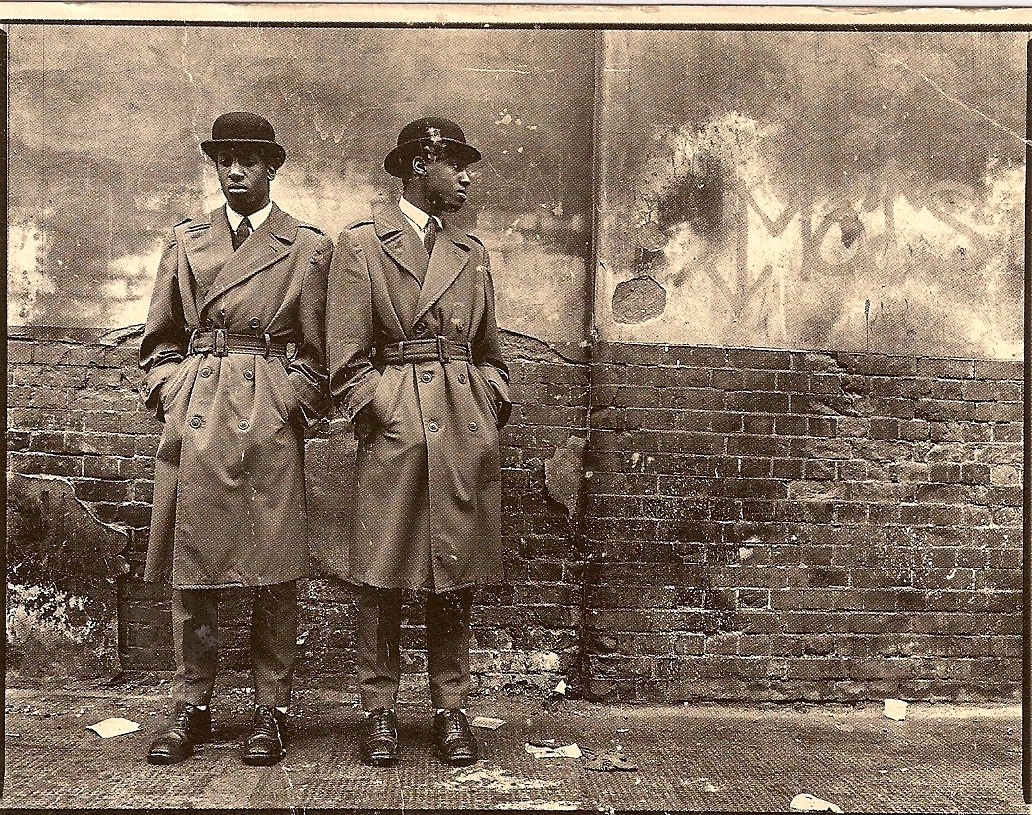
This picture was taken on a Sunday (Chet thinks) near Brick Lane, a notorious area in the late 70s and early 80s for anyone with brown skin or those who chose to dress as Mods instead of Skinheads. You risked being attacked and beaten up unless you were able to defend yourself. That said, it was a time when parts of London tingled with the sound of Two Tone, Ska, and 60s music. For us it was a very exciting time. We were unperturbed by the thought of being attacked – which happened on many occasions- but we were more than skilled enough to handle ourselves. Since we didn’t accept the concept of fear, there was nothing to worry about. That was our view.for us being a Mod was more than just the clothes. It was the way you conducted yourself and behaved towards others irrespective of what ‘tribe’ they belonged to.
If you ever wish to find these gentlemen, I suggest you simply flash one of their photographs around the Islington tube station and you’ll shortly be on their trail.


